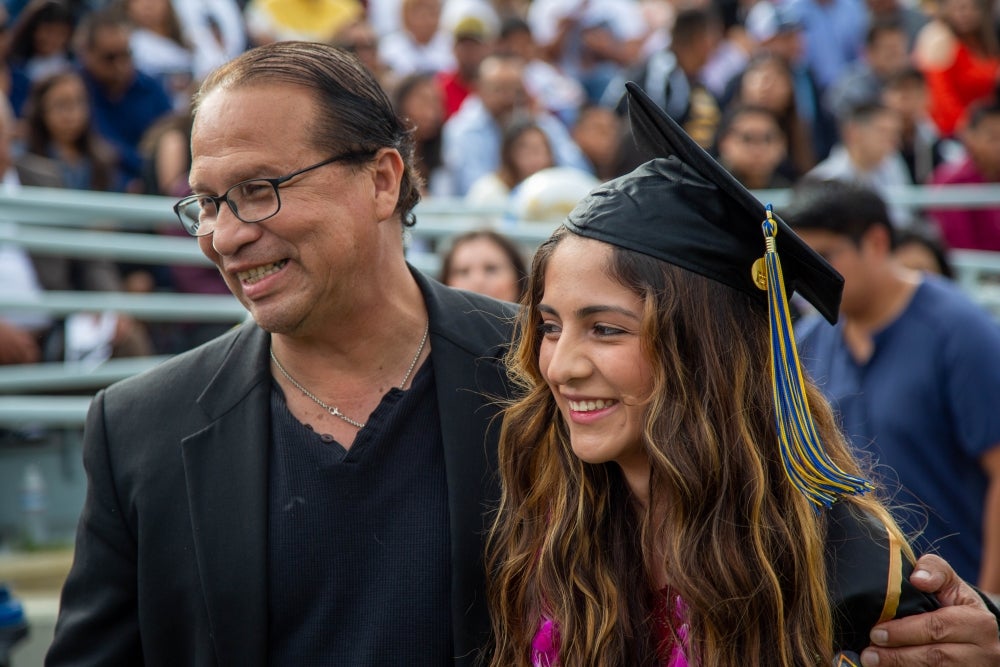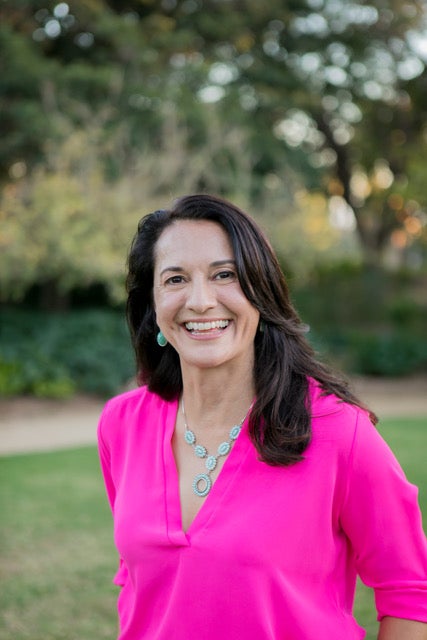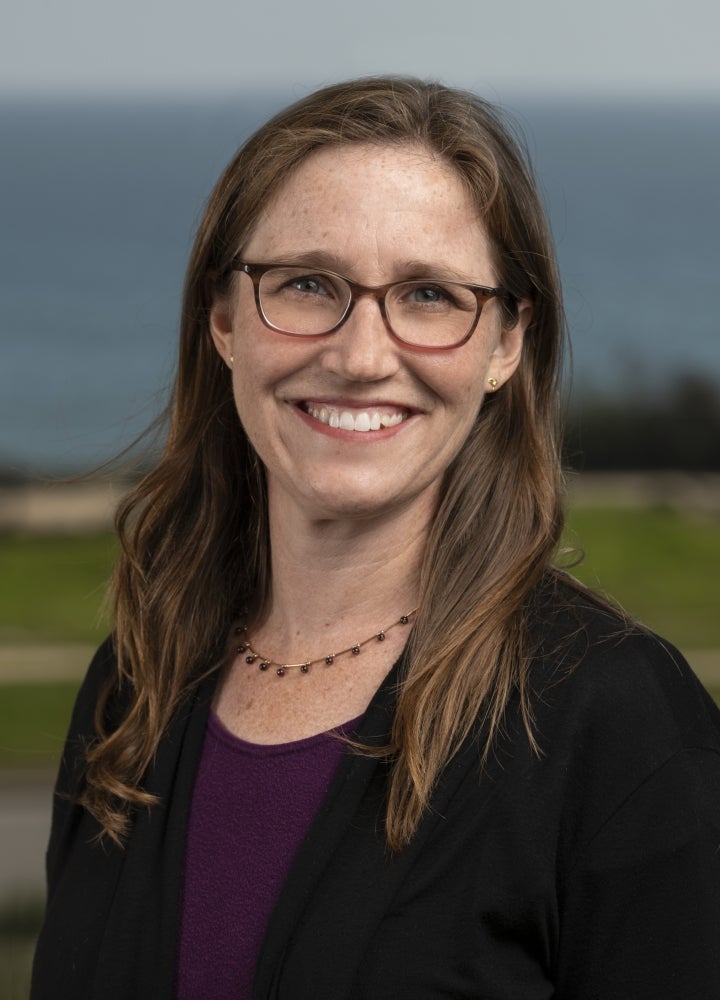
Making It Personal


Over the many years she’s been teaching, Dolores Inés Casillas has noticed that a lot of Latinx students majoring in STEM disciplines gobble up her survey course on Chicana and Chicano culture at UC Santa Barbara. That natural enthusiasm to engage with issues that are familiar to one’s lived experience got her thinking. Would more Latinx students graduate with STEM degrees if it was more personal to their lived experience?
Now, Casillas and fellow professors Sarah Anderson and David Pellow, with Susan and Bruce Worster Dean of Science Pierre Wiltzius, are poised to find out. The co-investigators have been awarded a $3 million National Science Foundation (NSF) grant. With that funding, the interdisciplinary group will establish the Center for Equitable Environmental Sciences (CEES) housed in the campus’s Chicano Studies Institute.
The NSF grant, which targeted Hispanic Serving Institutions (HSI), comes at the same time the university was awarded another grant earmarked for HSIs — this one from the U.S. Department of Agriculture — to focus on sustainable agriculture. “There are a lot of synergies between them,” said Anderson, an environmental politics professor and associate dean of diversity, equity and inclusion in the Bren School of Environmental Science & Management, who is a project investigator on both grants. Investigators on the USDA award are Anderson, Katherine Baylis and Ashley Larsen from UC Santa Barbara and Anna Josephson and Jeffrey Michler from the University of Arizona.
Anderson and Casillas expect the new interdisciplinary center, CEES, to serve up to 1,000 students annually, including hundreds of mentorships and internships. By anchoring the center’s focus within issues of social and environmental justice, Casillas said they hope to attract STEM majors of color.
“My classes offer a sense of home to students of color and that has always motivated me — why can’t we try to be more collaborative? It’s not that students of color don’t want to be in STEM, it’s just that it’s often pitched in a way that is not as compelling to them,” Casillas said, noting research on the matter by diversity and STEM education scholar Ebony Mcgee of Vanderbilt University. “McGee has found more success in explaining to students of color that STEM careers are also about working for justice in the community instead of solely saying, ‘you’re going to make a huge salary.’”
If students can see themselves in STEM and the objectives are community based, Casillas explained, they are more likely to pursue STEM degrees and to complete them. A professor of Chicana and Chicano studies, Casillas also is the director of the Chicano Studies Institute where CEES will have its central hub.
“This is a unique collaboration between the social sciences and the natural sciences that cuts across our traditional campus and disciplinary boundaries to better serve our students,” explained Charlie Hale, SAGE Sara Miller McCune Dean of Social Sciences at UC Santa Barbara.
At CEES, students will be looking at environmental issues from standpoints that include social justice and the communities impacted by climate change and environmental health hazards.
“We have such a rich environment here, we wanted to include not just our natural environment but also our built environment. We should be talking about pesticides and farm workers as much as oceanic pollution,” Casillas added.
CEES will also provide mentoring, learning communities and placement in STEM internships. Down the line, there will be a new environment and society career track program and a professional development program for faculty at UC Santa Barbara and the initiative’s community partner, Santa Barbara City College.
“This isn’t an assimilation approach. It’s taking our HSI status seriously and asking how can we — UCSB — accommodate Latinx students,” Anderson said.
The approach described by Anderson is a throughline in both grants. Grant project leaders came together with the idea that they can strengthen the campus community around environmental justice and particularly, racial justice, Anderson said.
“And we realized part of what was exciting about doing that is we hope that it will help alleviate one of our real challenges at UCSB — that of retaining underrepresented students in STEM majors,” added Wiltzius.
“Folks come in, they declare a STEM major, but they don’t find their way in the core classes, or they don’t see a career path and they leave,” Anderson said. “So, we want to keep the students who want to study chemistry, in chemistry. One way we thought to do it is to engage students in the problems that they might be naturally interested in so that they can see a path forward in that major for them.
“We also need to make sure they can see a career path that they are excited about,” she continued. “That’s why we emphasize internship and mentorship programs that put undergraduates with graduate students inside of environmental organizations where they can get job experience and see how they can fit into an organization.”
Partnering on the USDA grant with another HSI in University of Arizona (UA), their focus and much of the programming is similar to the NSF-funded CEES, but it’s a smaller grant with a specific focus on agriculture. It will also include summer programs and student exchanges with UA.
Teaming with Arizona brings together a broader group working to retain marginalized communities in STEM and includes programming with Pima Community College.
“Agriculture and food are intertwined in social justice issues and that requires diversity in leaders,” Anderson said. “Marginalized communities also struggle with food insecurity and that’s the jumping off point to expand into agriculture.”
Students who participate in the USDA-funded program, “Equitable Agriculture and Environmental Management,” will receive a small stipend, GRE training and other support if they decide to pursue graduate degrees. Summer sessions will be open to all students.
“This is part of a vision to have our campus be forward thinking in training the next generation of environmental leaders,” said Steve Gaines, dean of the Bren School. “Now we are all working together to head in that direction.”



